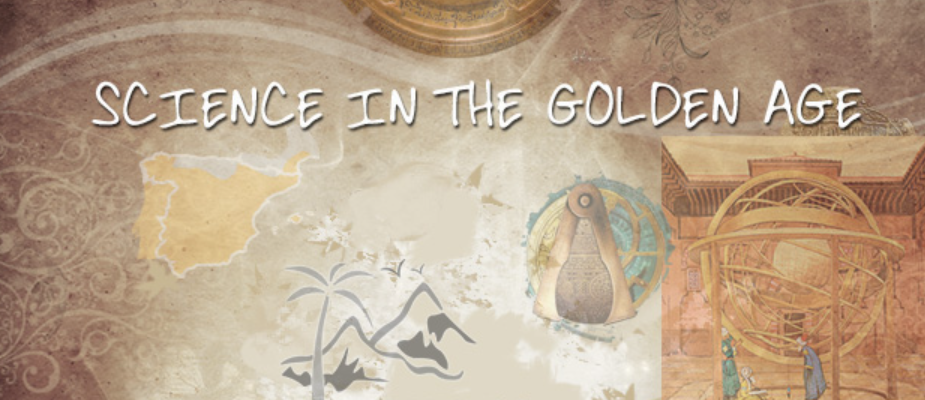An extremely rare period was the Golden age of Islam in history. It was happened between the 8th and 14th centuries. Muslim scholars generated significant progress in mathematics, physics and medicine during this time. Their actions and efforts transformed Europe and shaped the contemporary world in addition to benefiting their local communities. This period was unique and remarkable which pulled together faith, knowledge, Islamic unity, cultural diversity, eagerness and discipline. The Quran motivate Muslims by urging them to study, reflect and gain knowledge. They gathered literature and books from Greece, India and Persia. They introduced their own fresh ideas and translated them into Arabic. Famous learning hubs have been created in place like Cairo, Cordoba, Spain and the house of wisdom in Baghdad. The result was a civilization that was dedicated itself to expanding human understanding while fulfilling social demands.
Science in the Golden Age
Muslim scientists supported the testing of ideas and the exploration of nature. Their goal was to fully understand their surroundings. They questioned, tested and broadened previous knowledge rather than just preserving it.
Light and vision were researched by Ibn al-Haytham known as the “Father of Optics.” He clarified that light enters the eye through reflection from objects and enables individuals to see things. This was the significant shift from previous concept. Later, European intellectuals like Johannes Kelper and Roger Becon were influenced by his book Kitab al-Manazir.
Another strong area was Astronomy. Planetary movements and detailed star maps were developed by scholars such as Al-Biruni and Al-Tusi. They even made incredibly accurate calculations about the size of Earth. Observations in cities like Samarkand and Maragha have grown into significant hubs for astronomical studies. For many ages, Scholars there created elaborate star charts that helped in navigation. Muslims used this knowledge to understand the Islamic calendar, Qibla direction and prayers time.
Jabir ibn Hayyan conducted experiment in chemistry. He regarded as the “Father of chemistry” because of his systematic approaches in testing. He described the use of aids, crystallization and distillation. Later, his methods found their way in modern chemistry.
Medicine and Healing
During the Golden age, one of the most powerful field was Medicine. Muslims physicians merged the knowledge of ancient Greek with their own discoveries, particularly that of Hippocrates and Galen as well as their own ideas and clinical observations. As a result, the healthcare system was considerably more developed than that of Europe at the time.
A Persian doctor named Al-Razi wrote numerous books on illness and treatments. He was the first who described difference between measles and small pox in detail. Later, his works were used for hundreds of years throughout Europe. Kitab al-Hawi, his medical encyclopedia, was utilized in European universities for ages after being translated into Latin.
Another influential person was Ibn Sina. He was the author of the book The Canon of Medicine, one of the most famous medical book ever written. It provided very systematic and organized explanation of illness, treatments and medicines. Through the 17th century, the book continued to be a standard reference in European medical schools.
Muslims also constructed hospitals known as bimaristans. Located in cities like Cairo, Baghdad and Damascus, these hospitals trained medical students, provided free treatments and has specialized wards for various diseases. They served as a model for later European hospital systems and were highly developed for their time.
Mathematics and Numbers
During the Golden age of Islam, mathematics climbed to new heights. Muslim mathematicians developed completely new field of study in addition to preserving Greek and Indian works.
Algebra was first introduced by Al-Khwarizmi. His book Al-Jabr was the source of the term Algebra. He also invented the term Algorithm which later acquired importance in computer science. In his book Kitab al-jabr wal-Muqabala, he described precise methods for solving equations, laying the foundations for algebra. Algebra gained significant value in trade, architectures and engineering over time.
Muslim scholars expanded geometry and created trigonometry. Al-Biruni and others established accurate techniques for measuring the Earth and figuring out distances. Later European mathematics relied heavily on their trigonometric work, including the sine and cosine functions.
Muslim scholars also introduced the concept of zero and Arabic numerals. Compared to Roman numerals, this approach made calculating much simpler. Later, Europe embraced it and evolved into modern system.
How Knowledge Reached Europe
Knowledge about the Golden age is not limited to Muslims. These concepts made their way to Europe through trade, Sicily and Spain. Arabic book was translated into Latin by scholars. These translations provided new educational resources to Europe. During the middle ages in Europe, Muslims scholars continued to spread knowledge. Their discoveries impacted Europe philosophers and sparked Renaissance, a time of significant advancements in science, art and knowledge.
Lessons and Legacy
There are valuable lessons to be learned from the Golden age of Islam. Muslims scholars proved that faith and rationality can coexist. They believed that learning science was a necessary component of understanding Allah’s creation, not the opposite of faith. They also demonstrated the importance of sharing knowledge. They enhanced and transmitted Greek and Indian works to others, not just preserving them. This sows that hoe different cultures can gain information and knowledge from one another.
